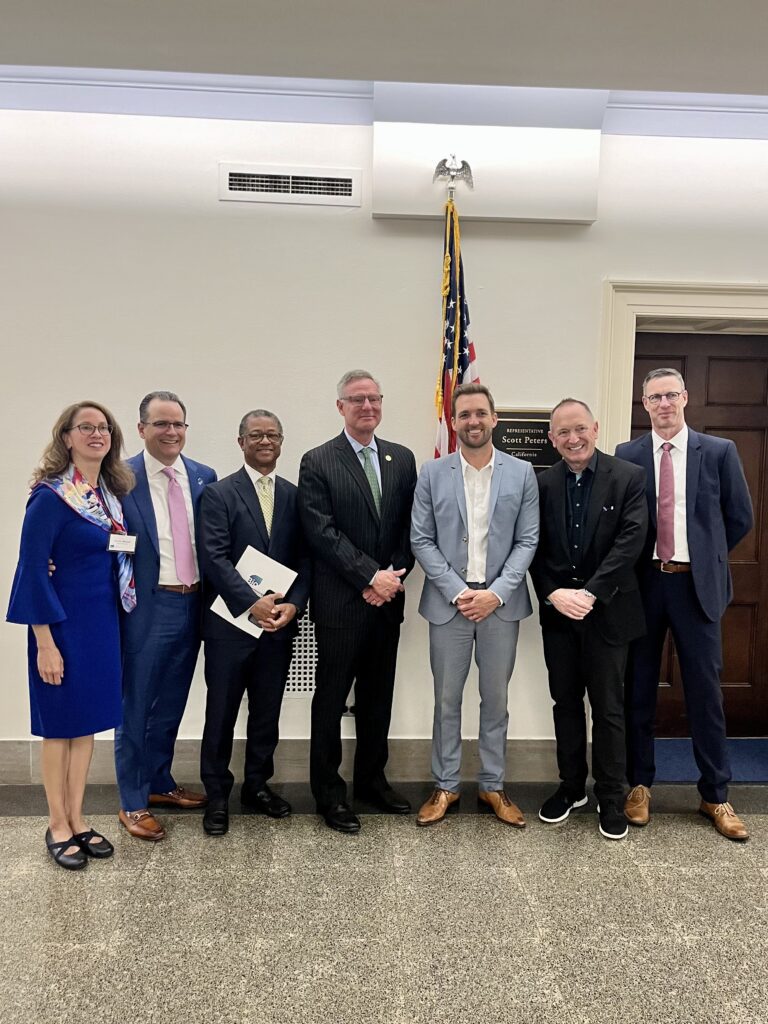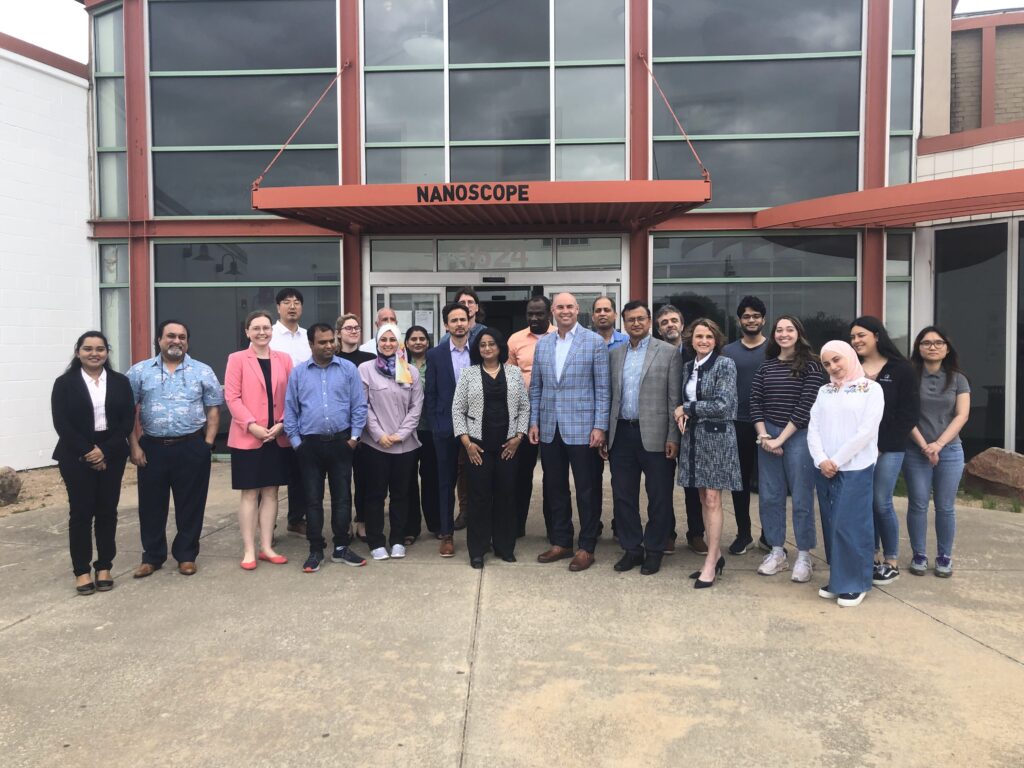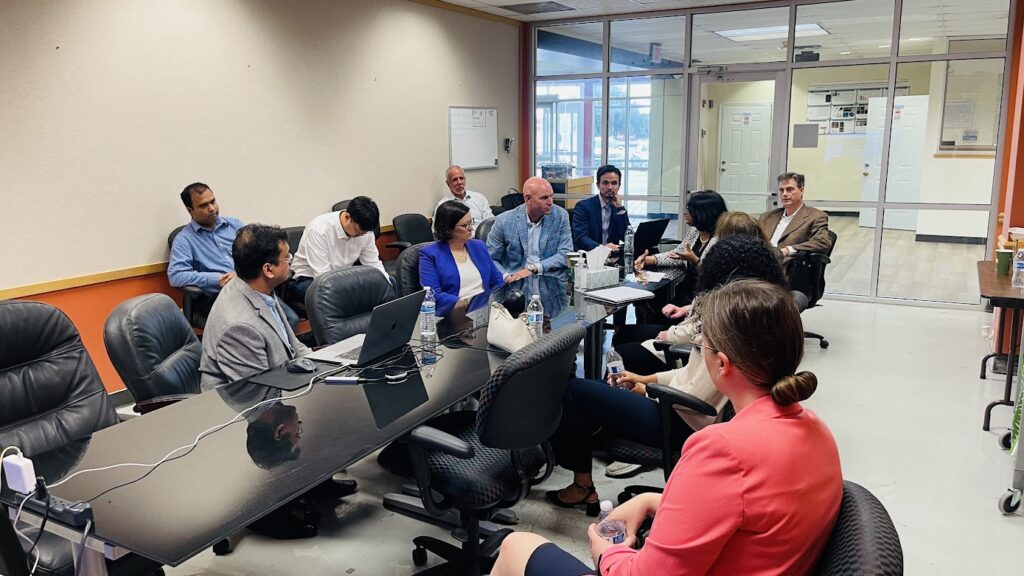In April, the Biotechnology Innovation Organization (BIO) held its biggest “fly-in” since the pandemic, while a Member of Congress “flew out” to visit a BIO member company in Texas.
On April 16-17, more than 100 advocates from 28 states met lawmakers on Capitol Hill to promote legislation that can support patient access and innovation.
Members of BIO’s Board of Directors and dozens of representatives from the Council of State Bioscience Associations (CSBA) came together for more than 130 meetings to discuss the importance of biotechnology with Congress – U.S. Senators and U.S. Representatives, Democrats and Republicans.
“Our members really spoke about the important work of their companies and the economic impact of the biotech industry across the nation. Each time BIO members tells their stories, we really do make impact,” said Aiken Hackett, BIO’s VP of Federal Government Relations, in an interview with Good Day BIO.

What are the key priorities for biotech companies in 2024?
BIO members brought up key priorities, including the need to restore immediate R&D expensing as well as the need to amend the Inflation Reduction Act (IRA) drug price controls.
The American Innovation and R&D Competitiveness Act of 2023 (S.866/H.R. 2673) is legislation under consideration that would reinstate full deductions for research expenditures that ended in 2022.
As we’ve reported, the 2017 Tax Cuts and Jobs Act (TCJA) changed the longstanding deduction for R&D expenditures to a mandatory five-year amortization for domestic R&D and a 15-year amortization for foreign R&D. Unless Congress repeals this provision, companies will no longer be able to use immediate expensing of R&D costs to invest in research or conduct clinical trials.
The ORPHAN Cures Act (S.3131/H.R. 5539) is another priority. It would amend the IRA orphan drug exclusion and incentivize critical follow-on investment in rare disease drug development.
As we’ve explained, under the IRA, drugs approved for a second medical condition are no longer exempt from price controls. But this will harm investment.
“Of the more than 280 orphan drugs approved since 2003, nearly a quarter were later approved to treat additional diseases. Some medicines earned approval for four or more follow-on indications,” said BIO Chair, Dr. Ted W. Love, in a Real Clear Health op-ed published in January.
The fly-in was a “wonderful opportunity to meet with our Illinois delegation and talk about issues that are important to the industry and bring in members that don’t normally get an opportunity to meet in D.C. with Congressional members,” said John Conrad, President & CEO of iBIO of Illinois and Chair of the CSBA board.

U.S. Rep. Ellzey visits Nanoscope Therapeutics in Texas
A week after BIO members flew home from Washington, on April 25, U.S. Rep. Jake Ellzey (R-TX) flew to Arlington, Texas, to visit BIO member company Nanoscope Therapeutics in his district.
Nanoscope Therapeutics is a late-stage clinical biotech developing gene therapies to cure genetic diseases that cause vision impairment and blindness. Nanoscope’s treatment, MCO-010, achieved the primary endpoint, “demonstrating a statistically significant improvement of best-corrected visual acuity” in people with advanced retinitis pigmentosa (RP) in a Phase 2 clinical trial, Nanoscope announced last month.
“We observed significant vision restoration in many patients with severe vision loss, including those who were completely blind,” said David Boyer, MD an investigator in the trial and Adjunct Clinical Professor of Ophthalmology at the University of Southern California Keck School of Medicine. “Many patients treated with MCO-010 derived a clinically meaningful benefit measurable on the primary visual function test, and this effect was confirmed by a parallel improvement in functional vision assessments. If approved, MCO-010 is poised to make a positive, meaningful impact on the lives of patients affected by this debilitating condition.”

Why advocacy matters
In meetings with Nanoscope’s CEO Sulagna Bhattacharya, a member of the BIO Board, Rep. Ellzey heard about the company and several of its policy priorities. Similar to the fly-in, priorities for Nanoscope include the ORPHAN Cures Act, which encourages researching additional indication uses for orphan drugs.
The company also thanked Rep. Ellzey for voting to restore the R&D tax deductions which is critical, even for companies like Nanoscope that aren’t yet earning sales revenues.
“Having Members of Congress witness first-hand the innovative research of BIO’s member companies helps us tell our story and emphasizes the work our industry is doing to tackle devastating diseases,” said BIO’s Aiken Hackett. “These visits are excellent opportunities to underscore how policies in Washington directly impact the development of therapies and cures, and even more so, the patients and their families.”
Nanoscope’s MCO-010 received Orphan Drug and Fast Track designation by the U.S. Food and Drug Administration (FDA) for treating RP and Stargardt, two rare diseases. MCOs may address another indication: “all forms of retinal degeneration,” the company says.
Nanoscope says it intends to submit a Biologics License Application (BLA) to the FDA in the second half of 2024.




